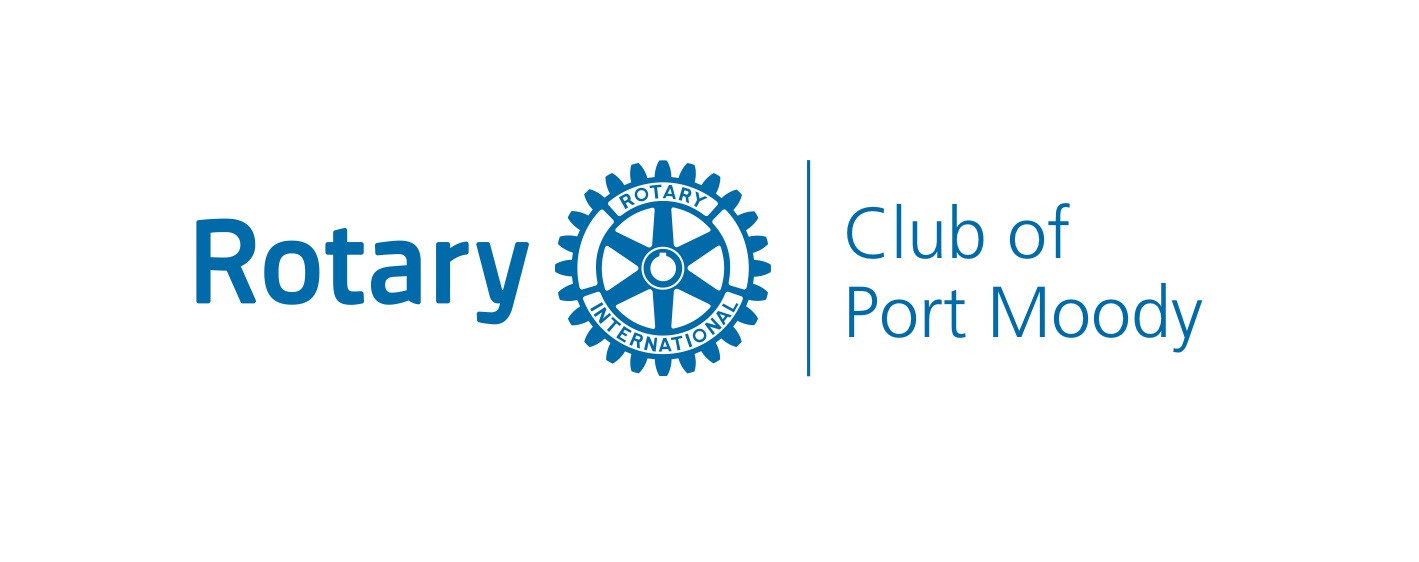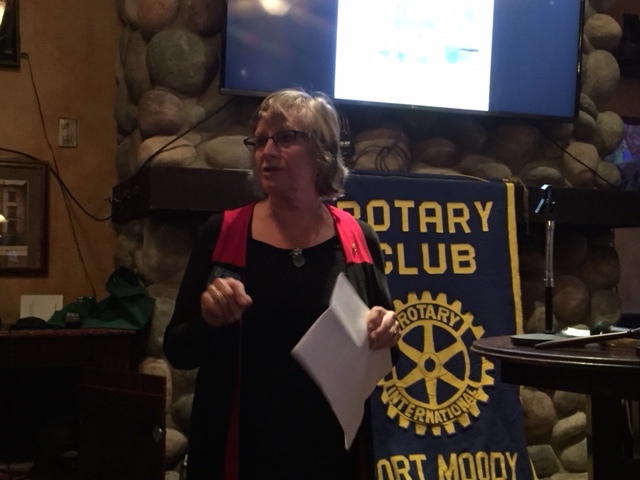What a great meeting, with 2 speech's from Port Moody Secondary.These students will be receiving a $1000. Scholarship to attend the College/university of their choice.Maggie Yang spoke about the treatment of our Native Indians in Canada and the history of the acts of Parliament, during the last 100 years. The speech was done around the 4 way test and a copy will be available online.Daniel Cooke spoke about the Atomic Bombs on Hiroshima and Nagasaki.Daniel's speech will also be available online.Thanks to Cindy Campbell student Counsellor at Port Moody Secondary for attending with the students.GAYLE CarterChair Vocational Service
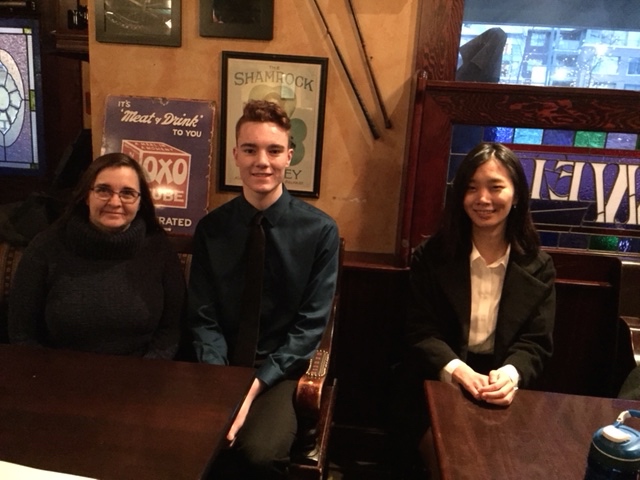
Daniel spoke second. He talked on how the 4 way Test could have been used when the US was deciding on whether to drop atomic bombs on Japan and how it could be used as support both the traditional historians who favored dropping bombs to save lives of allied troops by not forcing a land invasion and also revisionist historians who felt Japan was almost ready to capitulate and the bomb was not necessary. Both students gave very interesting reports on how the 4 way test could have been applied to Historical events.
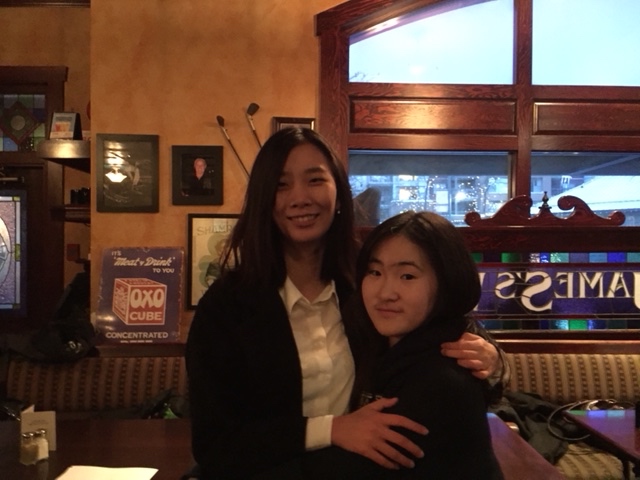
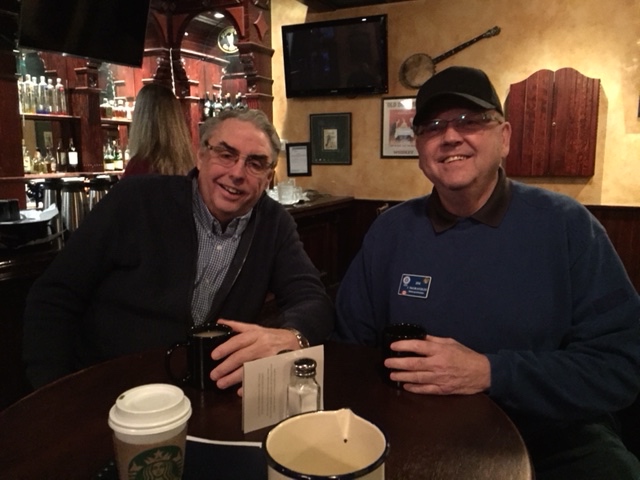
Clair spoke after the students to give an update of some new projects SHARE is pursuing. Clair is new to SHARE—her degree is from Ontario in speech/language issues in kids and worked in the government policy side. She moved to BC in 2015 to get in to front line service. She has 2 young preschool kids. She started at SHARE as Director of Children’s Programs and in November 2017 she was chosen as CEO of SHARE. SHARE has been around since 1972starting as volunteers who got together to organize clothing swaps for families who needed clothes. Thank you to our Club for all the efforts we have made over the years to support SHARE programs and their FOOD Drives. They offer programs for parenting, youth substance abuse, immigrants, food bank and SHARE store.
New programs they are exploring:
Children’s Centre in Port Moody (for the Tri-Cities) in partnership Simon Fraser’s Kinsight to provide information, contacts welcoming services etc. as a 1 stop place for families who need help in the Tri-Cities. It may also include St. Andrews Church and hopes to include 55 low cost housing.
They are also working with other groups on another housing initiative that will include up to 255 units in the Tri-Cities. Folks with very limited resources spend almost all their funds on market housing so they have no money for food. Most of them are already familiar with SHARE as a source of food for their families. It was good to hear there are potential new initiatives to help with affordable housing in the Tri-Cities.

SFPP tickets now printed and will be ready to sell soon. Will be available at Yellow Dog, Moody Ales, on line through City Hall and also at our Cider supplier in PoCo.
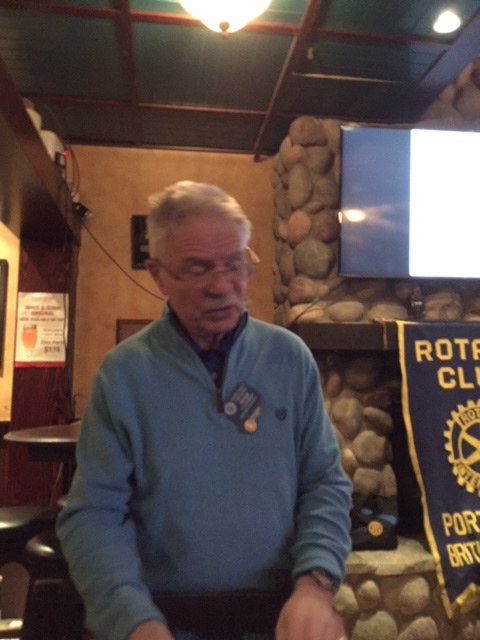
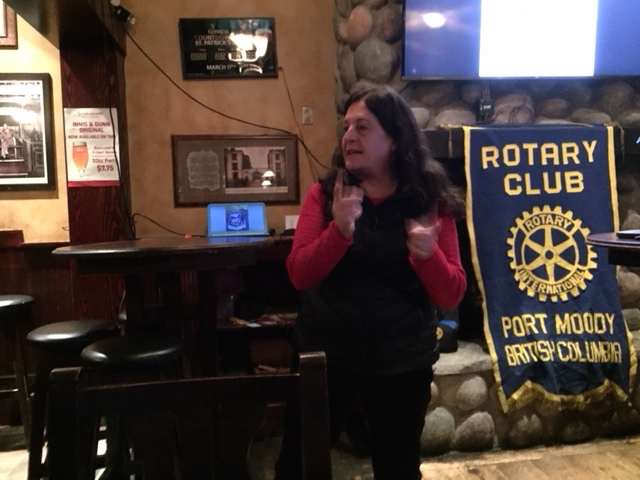
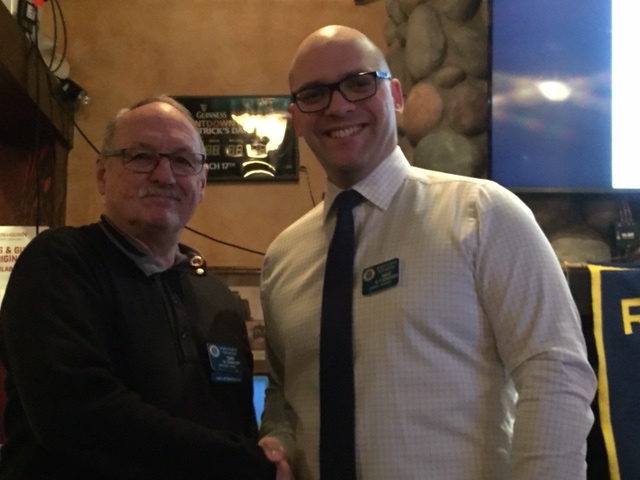
Birthdays—Ann and Issy (this year is a biggie)
March 1st Coquitlam Sunrises 7th Annual Quiz Night
March 10th will be a very busy day--Rotary Leadership Institute plus PoCo’s Winter Blues Festival.
April 7th Rotary Training Conference in Surrey. Our club pays for 5 attendees and last year we sent more than 10.
Of all the things we say, think or do: is it the truth? Is it fair to all concerned? Will it build goodwill and better friendships? And will it be beneficial to all concerned? These are the four principles that guide the day to day lives of Rotarians from all over the world.
Now, I’ll be honest with you. When I first heard about the history and the application of the Four-Way Test during last year’s Rotary Youth in Action Leadership Camp in March, I was completely confused. I couldn’t understand how such a simple philosophy could change the lives of so many people, and have such an immense impact on global enterprises and companies. Over dinner, we were asked to discuss our opinions on the significance of the Four-Way Test. When it was my turn to share, I expressed what I had on my mind the entire time.
“Isn’t it just common sense?”
Of course, I didn’t fully understand the gravity of the Four-Way Test then. Although the statements seems simple in theory, the true value of it lies in the application. The key to this test is not necessarily the answers to the question; rather, it is valuable in the way it forces you to think. In the process, you can appreciate the impact of your words and actions on others.
For example, let’s look at one of the most important and controversial moments in Canadian history, the Indian Act of 1867 and its following amendments. The original Indian Act aimed to assimilate First Nations peoples into normal “European” society, authorizing the Canadian government to impose overarching control over almost all aspects of their lives with the end goal to eventually eliminate them as “Indians”. Although some provisions of the act were beneficial to the native population, the large majority of the policies associated with the act were deeply harmful to Aboriginal society. From examining how the Four Way Test could be applied to the Indian Act, we can gain a better understanding of the impact the test could have on our every to day lives.
Let us first focus on the first principle of the Four Way Test: “Is it true?”. Are the intentions true and sincere? Are the actions in anyway deceitful or dishonest? These are the some of the issues we aim to answer in asking ourselves this question. The Indian Act of 1867 aimed to codify rights promised to Native peoples in the Royal Proclamation of 1763 while simultaneously integrating them into society. On the surface, this is true. The act did indeed provide benefits for Indigenous peoples, and it did indeed integrate many generations of First Nations peoples into mainstream society. However, there were hidden consequences in achieving these two goals. The policies introduced through the Indian Act enforced harsh assimilation of Aboriginal peoples through systems such as residential schools and marriage.
This brings us to our next two principles: “Is it fair to all concerned?” and “Will it build goodwill and better friendships?”. To answer these questions, let us consider both perspectives of the Canadian government and the native population of Canada. The Canadian government believed that the best way to achieve equality for Aboriginal peoples was to assimilate them into Euro-Canadian standards of civilization. However, although the Aboriginal peoples of Canada sought to be treated as equals, they also wanted to be recognized as a distinct society with their
own rules and government, just like how they’ve been living in the centuries before European colonization. These two viewpoints can be seen in when the federal government proposed the White Paper of 1969, which aimed to abolish the Indian Act and effectively remove Indian status from all Aboriginal peoples, making them equal to all other Canadian citizens. The federal government believed that it was fair, and it would build goodwill and better friendships.
This was true, in a sense. It was fair because it provided the same equal rights as any other Canadian citizen to Indigenous peoples under the Indian Act. It would build goodwill and better friendships because the Canadian government believed that they were improving relations with the native population by giving them equal rights. However, this move does not pass the last principle of the Four Way Test: will it be beneficial to all concerned? Although it may seem beneficial as it would remove the derogatory act that has oppressed Indigenous peoples for more than a century, most of the native population do not want this to happen in fear of losing their already little benefits and status provided by the Indian Act. In fact, for more than half of the Indigenous peoples in Canada, their “Indian” status is the only thing they have to prove their Aboriginal heritage.
In the end, the proposal of the White Paper of 1969 was an immense failure, and was met with heavy backlash and criticism from Aboriginal peoples. Their hatred of this act even compelled them to wittily retaliate with an act of their own: the Red Paper of 1970.
And so, the Indian Act continues to exist today in its amended form; a disgrace to Canadian history and yet a complex issue that simply cannot be erased. The Indian Act of 1867 failed to pass all four principles of the Four Way Test; and as you can see, the Indian Act had catastrophic consequences to Aboriginal society. Even today, Aboriginal culture continues to suffer from the consequences of the original Indian Act. From examining the failures of the Canadian government in their approach to the Indian Act, we can see how the government could have benefited from the application of the Four Way Test in their planning and execution of the Indian Act.
In the future, whenever you’re encountered with a tough decision, I hope that you’ll perhaps remember the failures of the Canadian government in regards to the Indian Act, and think back to the 4 guiding principles of the Four Way Test: Is it the truth? Is it fair to all concerned? Will it build goodwill and better friendships? And will it be beneficial to all concerned?
Thank you.
